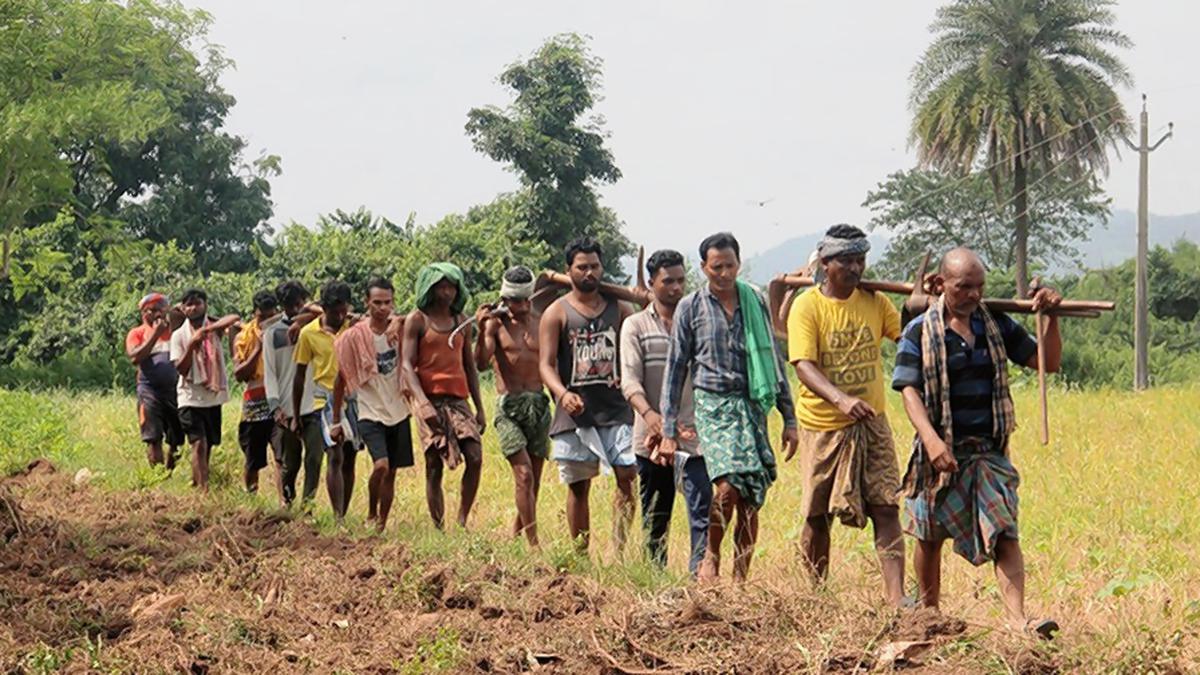
Deadline for using Aadhaar-based payment system for MGNREGS workers extended
The Hindu
Deadline for using Aadhaar-based payment system for MGNREGS workers extended by three months till June 30. Earlier, it had given one extension till March 31.
Following sustained protests from the Mahatma Gandhi National Rural Employment Guarantee Scheme (MGNREGS) workers, the Union government has decided to extend the deadline for workers to use Aadhaar-based payment system for receiving wages by three months till June 30. Earlier, it had given one extension till March 31.
On March 31, as per the sources the Union Rural Development Ministry’s own data pointed out the beneficiary accounts eligible for Aadhaar-based payments were only 80%. Despite the extension, 20% of the MGNREGS workers were off the grid. The rural employment law clearly states that the workers have to be paid within 15 days of doing the job. The order, therefore, was directly interfering with the implementation of the law.
Data | MGNREGS woes: Payment delays, Aadhaar seeding troubles and budget cuts
NREGA Sangarsh Morcha, a workers collective platform focused on the scheme, has been protesting at Jantar Mantar in New Delhi for the last 55 days on the various problems plaguing the scheme. One of the issues is regarding the Aadhaar-based payment system, which they call very cumbersome especially for workers who aren’t conversant with the banking system. For each day’s paperwork, they end up losing the day’s wages. A delegation of the Morcha met the Union Rural Development officials thrice in the span of their protest. Heeding to their requests, last week, the Ministry has extended the deadline now for June 30.
Until now, the NREGA payment system allowed two modes of wage payment: “account-based and Aadhaar-based”. The former is a plain bank account transfer. The latter uses Aadhaar as a financial address and sends money to the person’s “last Aadhaar-linked account”. In its circular, the Ministry argued that the switch is being made to “ensure effective implementation” of the programme, making it mandatory from February 1.
“For the Aadhaar-based option to work, not only the worker’s must have job card and bank account be seeded with Aadhaar, the account has also to be connected to the National Payments Corporation of India (NPCI). This connection, known as mapping can be very cumbersome, because it requires meeting stringent KYC requirements, resolving possible inconsistencies between the Aadhaar database and bank account,” Jean Dreze, one of the key architects of the original scheme, had said at a press conference in February.













